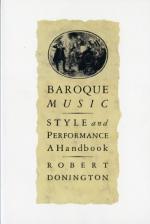|
This section contains 504 words (approx. 2 pages at 300 words per page) |

|
Francis Bacon, Novum Organum (The New Organon; 1620)—The first part of Bacon's planned Great Instauration, this work sets forth a method for discerning scientific truth that had a profound effect on the later thinkers of the Scientific Revolution. It consists of a series of aphorisms (short statements) in which Bacon outlines how truths about nature can be ascertained.
Pierre Bayle, Historical and Critical Dictionary (1702)—This enormous work totals over nine million words, and was a significant force in giving rise to the questioning spirit of the early Enlightenment. Its enormous scope was only outdone by the Encyclopédie of the French Enlightenment.
George Berkeley, Treatise Concerning the Principles of Human Knowledge (1710)—A major work of English empiricism, this text includes the famous observation "to be is to be perceived" (esse is percipi).
Étienne Bonnot de Condillac, Treatise on Sensation (1754)—This important work...
|
This section contains 504 words (approx. 2 pages at 300 words per page) |

|



